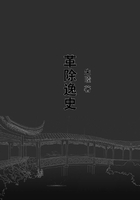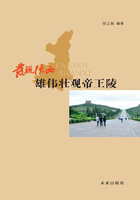Eastward of Peru in the vast mountainous region of Charcas, on the very heights of South America, the royalists still found a refuge. In January, 1825, a patriot general at the town of La Paz undertook on his own responsibility to declare the entire province independent, alike of Spain, Peru, and the United Provinces of La Plata. This action was too precipitous, not to say presumptuous, to suit Bolivar and Sucre. The better to control the situation, the former went up to La Paz and the latter to Chuquisaca, the capital, where a Congress was to assemble for the purpose of imparting a more orderly turn to affairs. Under the direction of the "Marshal of Ayacucho," as Sucre was now called, the Congress issued on the 6th of August a formal declaration of independence. In honor of the Liberator it christened the new republic "Bolivar"--later Latinized into "Bolivia"--and conferred upon him the presidency so long as he might choose to remain. In November, 1896, a new Congress which had been summoned to draft a constitution accepted, with slight modifications, an instrument that the Liberator himself had prepared. That body also renamed the capital "Sucre" and chose the hero of Ayacucho as President of the republic.
Now, the Liberator thought, was the opportune moment to impose upon his territorial namesake a constitution embodying his ideas of a stable government which would give Spanish Americans eventually the political experience they needed. Providing for an autocracy represented by a life President, it ran the gamut of aristocracy and democracy, all the way from "censors" for life, who were to watch over the due enforcement of the laws, down to senators and "tribunes" chosen by electors, who in turn were to be named by a select citizenry. Whenever actually present in the territory of the republic, the Liberator was to enjoy supreme command, in case he wished to exercise it.
In 1826 Simon Bolivar stood at the zenith of his glory and power.
No adherents of the Spanish regime were left in South America to menace the freedom of its independent states. In January a resistance kept up for nine years by a handful of royalists lodged on the remote island of Chiloe, off the southern coast of Chile, had been broken, and the garrison at the fortress of Callao had laid down its arms after a valiant struggle. Among Spanish Americans no one was comparable to the marvelous man who had founded three great republics stretching from the Caribbean Sea to the Tropic of Capricorn. Hailed as the "Liberator" and the "Terror of Despots," he was also acclaimed by the people as the "Redeemer, the First-Born Son of the New World!" National destinies were committed to his charge, and equestrian statues were erected in his honor. In the popular imagination he was ranked with Napoleon as a peerless conqueror, and with Washington as the father of his country. That megalomania should have seized the mind of the Liberator under circumstances like these is not strange.
Ever a zealous advocate of large states, Bolivar was an equally ardent partisan of confederation. As president of three republics--of Colombia actually, and of its satellites, Peru and Bolivia, through his lieutenants--he could afford now to carry out the plan that he had long since cherished of assembling at the town of Panama, on Colombian soil, an "august congress"representative of the independent countries of America. Here, on the isthmus created by nature to join the continents, the nations created by men should foregather and proclaim fraternal accord.
Presenting to the autocratic governments of Europe a solid front of resistance to their pretensions as well as a visible symbol of unity in sentiment, such a Congress by meeting periodically would also promote friendship among the republics of the western hemisphere and supply a convenient means of settling their disputes.
At this time the United States was regarded by its sister republics with all the affection which gratitude for services rendered to the cause of emancipation could evoke. Was it not itself a republic, its people a democracy, its development astounding, and its future radiant with hope? The pronouncement of President Monroe, in 1823, protesting against interference on the part of European powers with the liberties of independent America, afforded the clearest possible proof that the great northern republic was a natural protector, guide, and friend whose advice and cooperation ought to be invoked. The United States was accordingly asked to take part in the assembly--not to concert military measures, but simply to join its fellows to the southward in a solemn proclamation of the Monroe Doctrine by America at large and to discuss means of suppressing the slave trade.
The Congress that met at Panama, in June, 1826, afforded scant encouragement to Bolivar's roseate hope of interAmerican solidarity. Whether because of the difficulties of travel, or because of internal dissensions, or because of the suspicion that the megalomania of the Liberator had awakened in Spanish America, only the four continental countries nearest the isthmus--Mexico, Central America, Colombia, and Peru--were represented. The delegates, nevertheless, signed a compact of "perpetual union, league, and confederation," provided for mutual assistance to be rendered by the several nations in time of war, and arranged to have the Areopagus of the Americas transferred to Mexico. None of the acts of this Congress was ratified by the republics concerned, except the agreement for union, which was adopted by Colombia.















